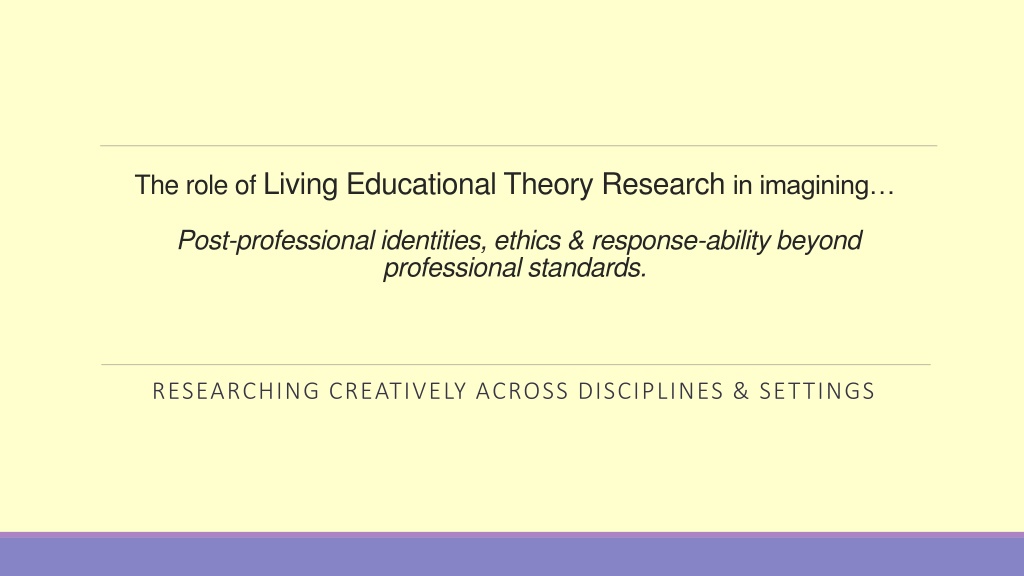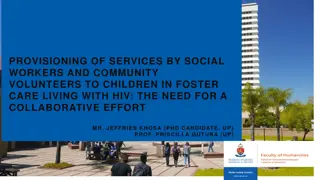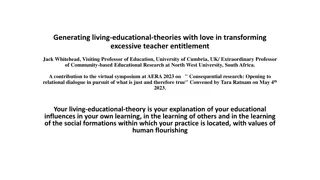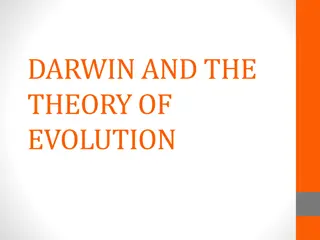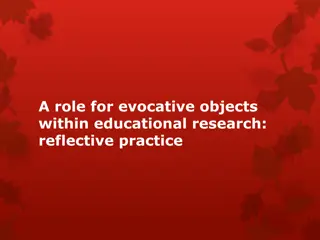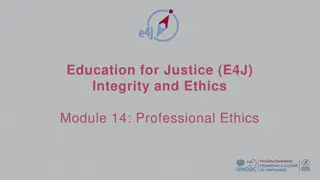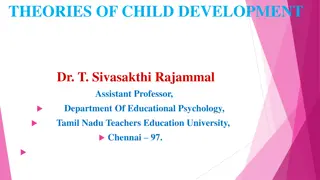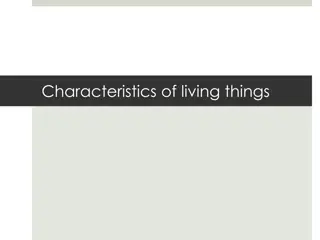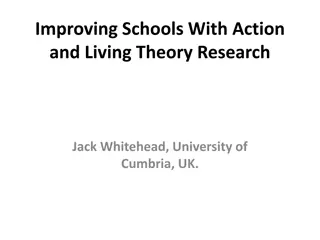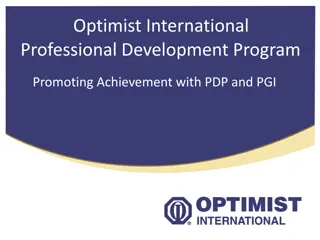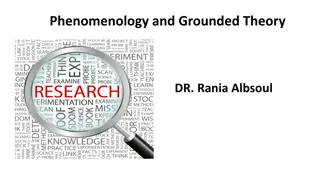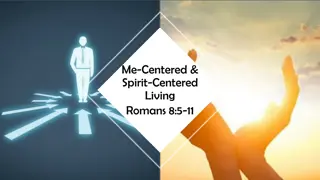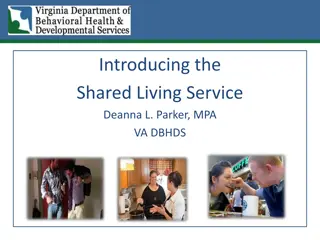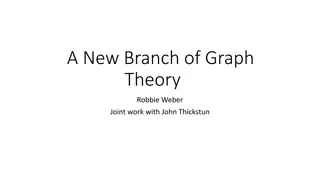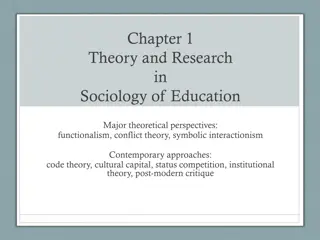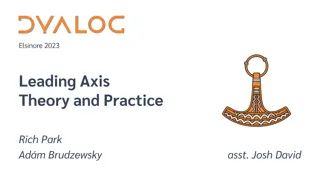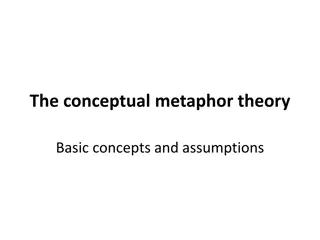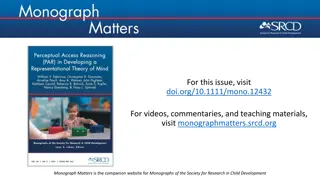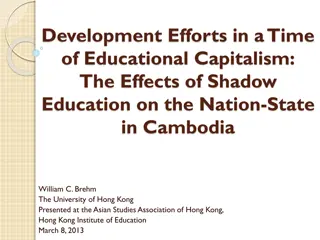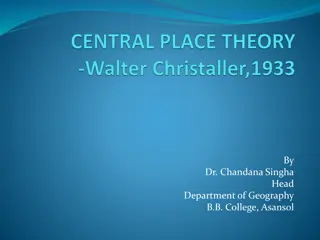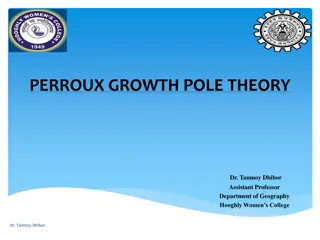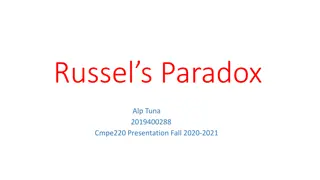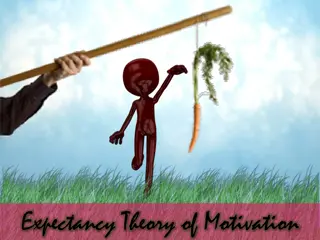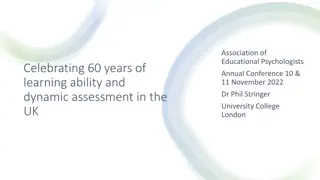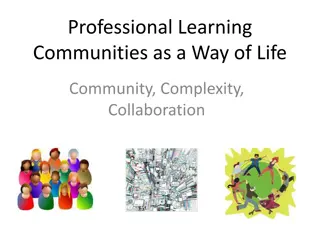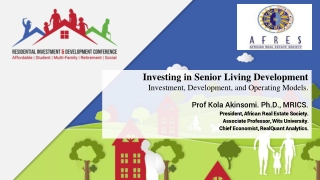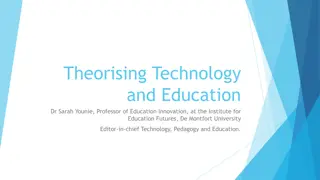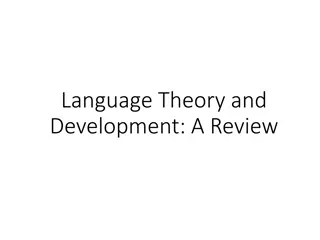Exploring Living Educational Theory Research in Professional Development
Living Educational Theory Research plays a crucial role in shaping post-professional identities and expanding ethical responsibilities beyond conventional standards in physiotherapy educational practice. By engaging in this research, professionals can transform their practices, incorporate existing knowledge into new identities, and contribute to the knowledge base of their field, all while fostering values-driven education and scholarly discourse within diverse learning communities.
Download Presentation

Please find below an Image/Link to download the presentation.
The content on the website is provided AS IS for your information and personal use only. It may not be sold, licensed, or shared on other websites without obtaining consent from the author. Download presentation by click this link. If you encounter any issues during the download, it is possible that the publisher has removed the file from their server.
E N D
Presentation Transcript
The role of Living Educational Theory Research in imagining Post-professional identities, ethics & response-ability beyond professional standards. RESEARCHING CREATIVELY ACROSS DISCIPLINES & SETTINGS
How am I Supporting Professional Development in Physiotherapy Educational Practice through Living Educational Theory Research? Sparkes (2002) describe Physiotherapy [Academic] Educators as the producers of future professionals and the aspirational creators of a profession (1). However Academics undergo a transformation of identity where [they] retain discipline background, but undergo significant changes in nature and structure of what they do and how they do it [their practice] (2). I feel that I have an opportunity and therefore responsibility to offer values, understanding, knowledge and skills and make an original contribution to my practice and society. By engaging in Living Educational Theory research I hope like myself others will find harmony in accepting a new professional identity that allows them to incorporate existing skills and knowledge into their developing practice; their professional practice beyond regulatory standards.
Living Educational Theory Research Centred within the pursuit of answering the age-old question how can I improve my practice? , and committed to providing power to the I within this statement. Supports consideration of how an individual s values and beliefs can influence their interaction with their own practice, with their students learning and with wider society. It provides the individual the opportunity to create knowledge by supporting them to identify and reflect upon the intrinsic influencers upon their practice and development, but also opens up for the individual the prospect of contributing to the knowledge base within their field of practice. a values-driven education research genre [encouraging] research from within educational practice (3).
Symposium Threads Professionalism Educational Responsibility Educational Communities & Conversation. Within Living Educational Theory research I am supported as part of a diverse learning community, which promotes scholarly discourse and educational conversation, to engage critically and creatively with my developing professional practice .
Professionalism Defining professionalism can be difficult as it can be fluid, changing dynamically, with changing contexts this creates a dynamic tension as it is both an extremely personal, internalised belief, whilst being very much situated in the immediate environment (4). My own professional development has led me to a different occupational context, where it has been challenging to undergo individual educational professionalisation, extra to meeting my commitment to maintaining physiotherapy practice standards I recognise my professional identity and professionalism as a balance of intrinsic and extrinsic factors, and seek harmony in their changing interactions . J.Mounter's exploration of Living Professionalism is synonymous with this as she offers an active consideration of professionalism which isn t static, but which has motion as practitioners move in pursuit of their continuing professional development beyond practice standards by accepting Professional Responsibility.
Educational Responsibility I propose that educational responsibility could be defined as: a duty to teach, train and learn, to improve knowledge and develop skills, whilst accepting accountability for the consequences of doing so. The writings of M.Huxtable and J.Whitehead (2017) further recognise the living and evolving nature of educational practice, but also outline the responsibilities of professional educator practitioners; to continually inquire into their practice to learn how to improve it to contribute to, and draw on, an educational knowledge-base (5). Through Living Educational Theory research I have been able to recognise my educational responsibilities, whilst also being supported and equipped with the skills and ability to respond to them as part of an educational community.
Educational Communities & Conversation one of the distinctive features of Living Educational Theory research is its focus on collaboration and community, as researchers describe and explain their educational influences in [not on] the learning of themselves, each other and the social formations of which they are part of (1). I have always been conscious of a desire to promote collaboration, as I believe this allows for the growth of diverse communities of learning and opportunities for pedagogical development. 1st International Living Educational Theory Research Conference 2020
References & Resources 1. Sparkes, V.J. (2002) Profession and professionalisation: part 1: role and identity of undergraduate physiotherapy educators. Physiotherapy, 88(8), pp.481-492. 2. Murray, C., Stanley, M. and Wright, S. (2014) The transition from clinician to academic in nursing and allied health: A qualitative meta-synthesis. Nurse Education Today, 34(3), pp.389-395 3. Mellett, P. (2020) Evolving Educational Influences in Learning: collaborative communities of practice, relationally-dynamic constellations of values and praxis. Educational Journal of Living Theories, 13(1). 4. Morrow, G., Burford, B., Rothwell, C., Carter, M., McLachlan, J. and Illing, J. (2011) Professionalism in healthcare professionals. Report to the health and care professions council. London: HCPC. 5. Huxtable, M. and Whitehead, J. (2017) Enhancing professionalism in education through inquiry learning: a living theory research approach. http://www.spanglefish.com/TheAcademicPhysiotherapist/ http://www.spanglefish.com/livingtheoryresearchgathering/ http://www.spanglefish.com/mariessite/ https://www.actionresearch.net/
